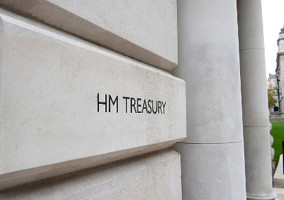The charity sector’s contribution to the economy is severely underestimated and could amount to £200bn per year, a report from Pro Bono Economics (PBE) has found.
This is 12 times more than officially estimated, a discrepancy which leaves the sector “vulnerable to policy neglect”.
The report, Undervalued and Overlooked? The Need for Better Understanding of Civil Society’s Contribution to the UK Economy, was put together by PBE’s economists Jon Franklin, Mark Graham and Matt Whittaker. It argues for a review of the way the charity sector’s contribution to the economy is officially calculated.
Four types of contributions not taken into account
An estimate from NCVO and the Office for National Statistics (ONS) puts the charity sector’s gross added value (GVA), which represents its contribution to the country’s economy, at £17bn.
According to PBE’s report, this figure is way too low because it does not take into account four types of contributions, made by:
- Official volunteers.
- Informal volunteers.
- Spillover fiscal benefits: this refers to the fact that, for example, helping homeless people into accommodation and work can result in lower crime rates and health spend, as well as higher tax revenues.
- Wider economic spillover: this looks at the wider economic benefits of charity services for individuals (for example, receiving counselling at primary school can result in a person living a healthier life and having higher lifetime earnings).
The report says: “That figure of £17bn understates the true value of the sector. The scale of the undervaluation is uncertain, but we can be confident that it is very significant.”
The report says that while there is not enough data available to make an accurate estimate, if these factors are considered, the sector could be worth as much as £200bn.
It also suggests that both the sector itself and the government could do more to ensure there is more data on this.
The report says: “We haven’t done a good enough job as a sector of capturing and then communicating our own value. That’s understandable given the limited resources available to charities and the prioritisation of fighting fires at the frontline. But it’s nevertheless something we have to get better at: systematically and consistently surveying our clients, staff and volunteers to understand and monitor the impact of our activities.”
‘Chronic’ undervaluation of the sector
Finally, the report suggests that the £750m government response package to the coronavirus crisis is insufficient due to this undervaluation.
Matt Whittaker, chief executive of Pro Bono Economics and co-author of the report, said: “The rescue package announced for the charity sector is large and is welcome. But it falls well short of the level of need in the sector. This under-resourcing is in large part a product of the chronic undervaluation of the contribution made by civil society to the UK economy: an undervaluation which has resulted in policy neglect over a number of years.
“The government needs to revisit the adequacy of its rescue package as a matter of urgency. Our weekly tracker highlights the very considerable pressures being endured by charities across the country. Vital activity has already been scaled back, and there is the very real danger that some services and support will be withdrawn altogether over the coming months.
“Alongside rising to today’s very visible funding challenges, it’s important that we do more to better understand the all-too-often invisible value of civil society. It is only by doing so that we can ensure that the sector gets the recognition – and therefore the policy attention – that it deserves.”
Last week, a survey from PBE and Civil Society Media found that at 92% of charities, coronavirus is having a negative impact on the ability to meet charity objectives, and 44% have already drawn on reserves.












